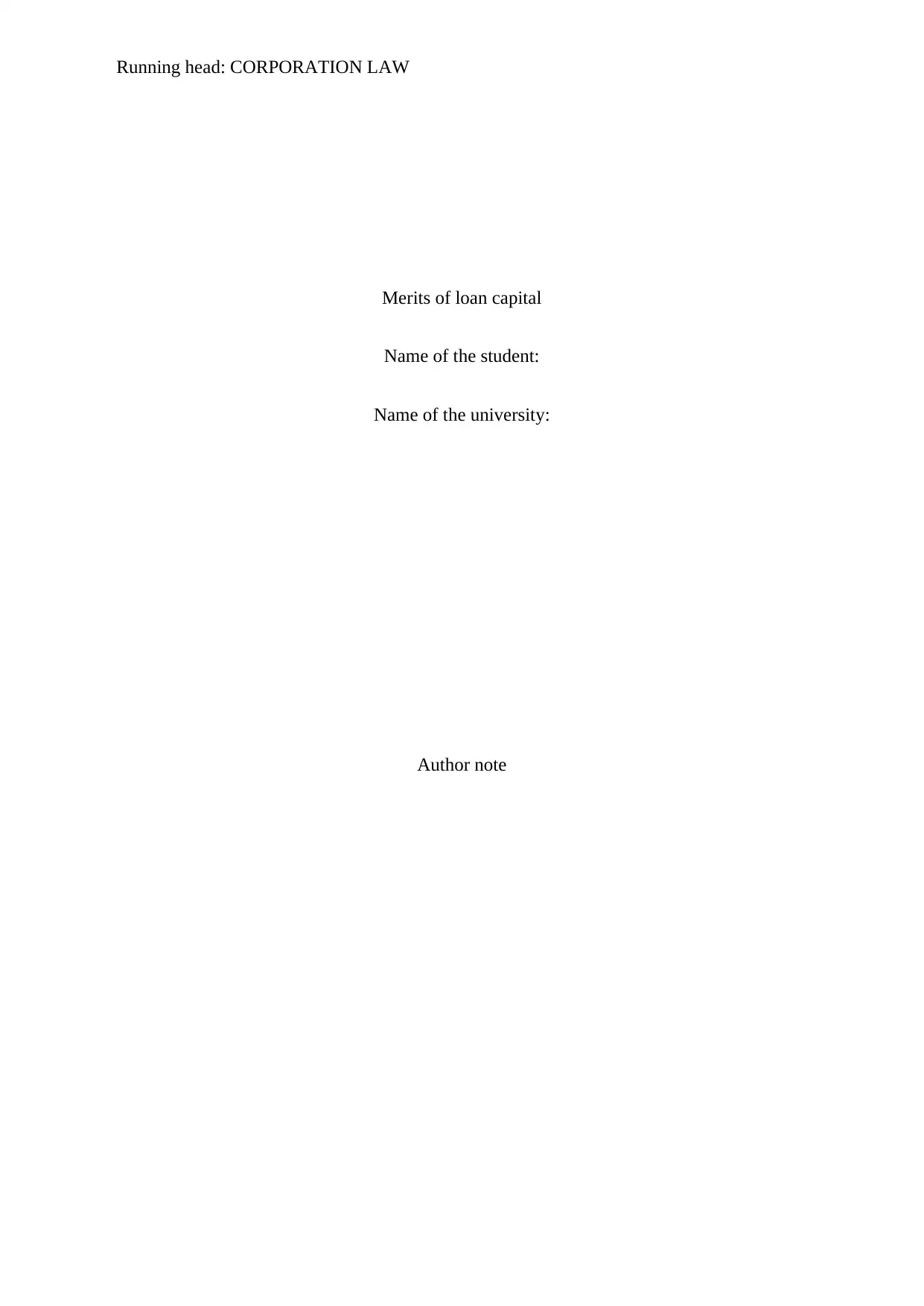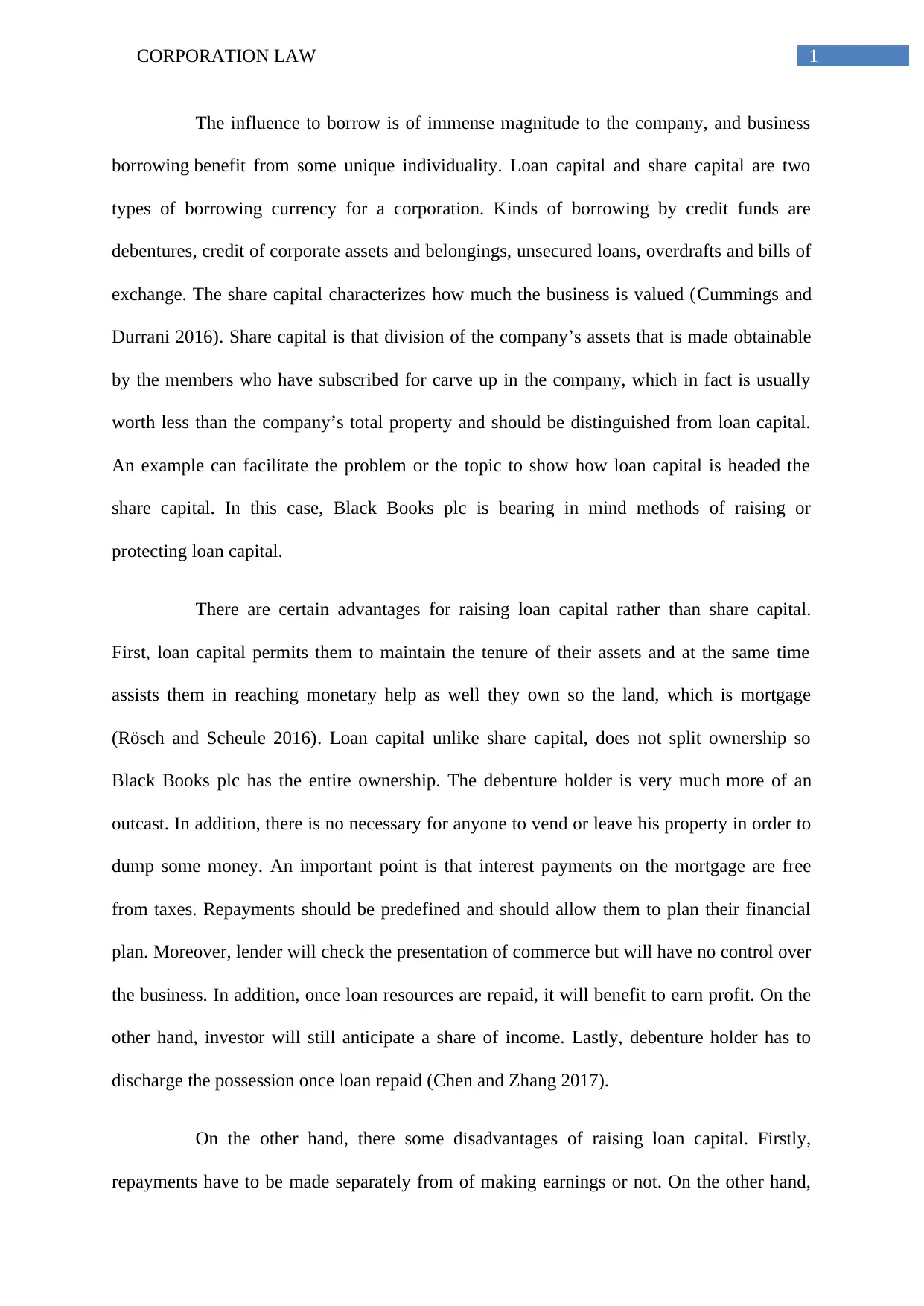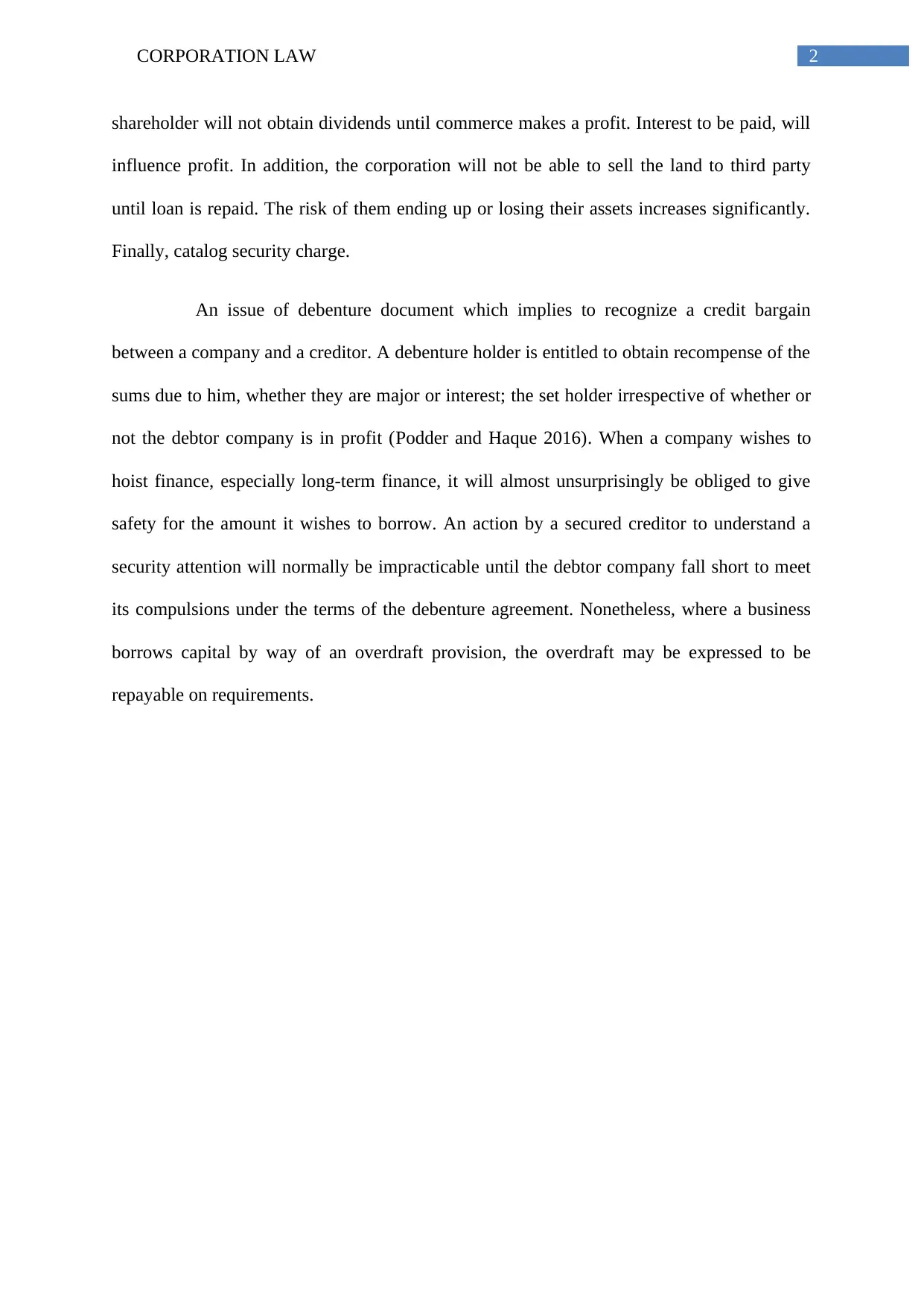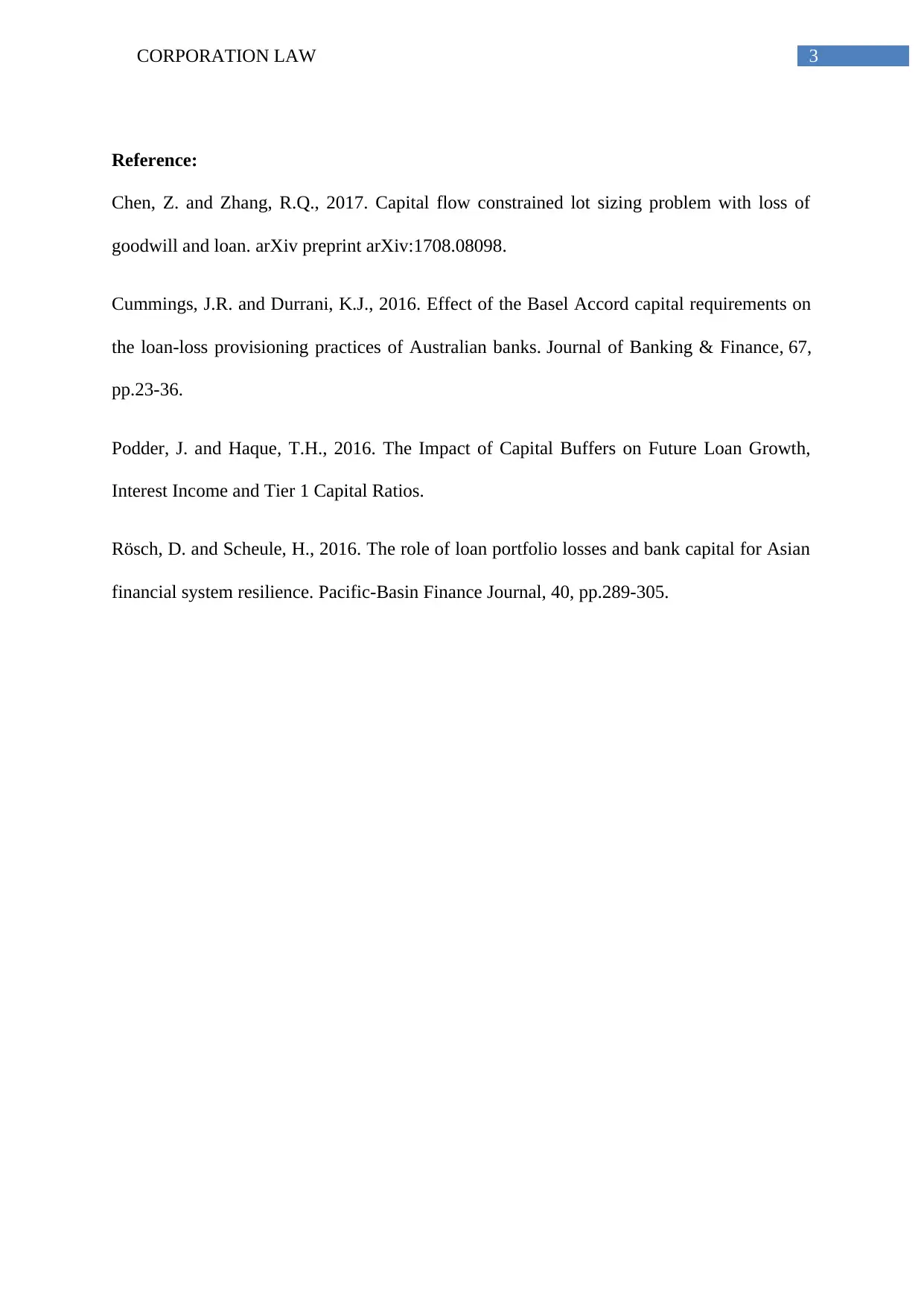Corporation Law: Analysis of Merits of Loan Capital in Business
VerifiedAdded on 2020/04/21
|4
|762
|80
Report
AI Summary
This report examines the merits of loan capital within the framework of corporation law, contrasting it with share capital. It explores various forms of borrowing, including debentures and overdrafts, highlighting advantages such as maintaining ownership, tax benefits on interest payments, and lender non-interference in business operations. The report uses a case study of Black Books plc to illustrate how companies can raise and protect loan capital. It also addresses the disadvantages of loan capital, such as the obligation to make repayments regardless of profit, the impact on profit due to interest payments, and the potential for asset loss. Additionally, it discusses debenture documents and the implications for secured creditors, including the process of understanding security interests when a company fails to meet its obligations. The report concludes by emphasizing the importance of understanding the implications of both loan and share capital for businesses.
1 out of 4











![[object Object]](/_next/static/media/star-bottom.7253800d.svg)